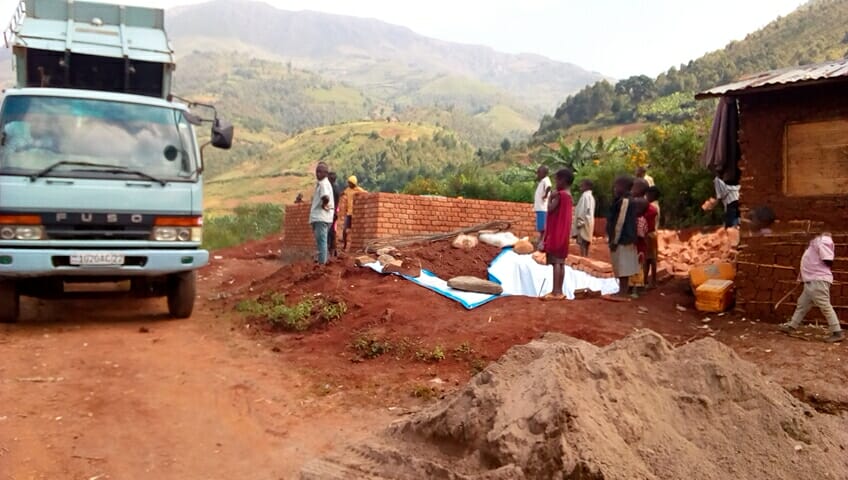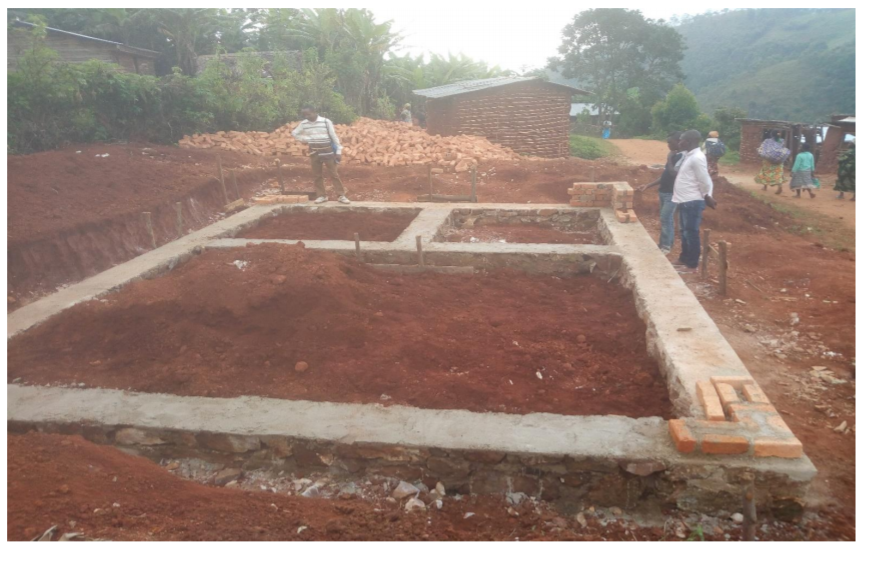Projet 2017∕117-RD Congo-GDIBU –Traitement café : Qu’est ce qui va changer ?

Publié à l’origine le 11 juin 2018 à 7h3
With the support of the International Non-profit Association Eu Can Aid !, a coffee processing unit is being set up by the Grenier organization for Integrated Development in Bushi and will effectively serve the farmers farmers of here March 2019.
The Walungu territory in general and the Mazigiro sub-group in particular have enormous potential for producing Arabica coffee. However, the lack of innovation and investment in production techniques, pulping, washing, drying, storage and transport leads to the wet production of poor-quality parchment coffee for informal trade and smuggling. .
Hourly overloads, lack of supervision of farmers and appropriate equipment for post-harvest processing of coffee lead to:
A harvest of cherries at stages of different maturities,
Late pulping, often after early fermentations,
Incomplete washing, leaving the mucilages on the surface of the pulp,
A high quantity of beans that are wounded, broken or badly peeled following the use of rudimentary tools, wooden pulpers, worn, poorly adjusted or badly used,
Slow or incomplete drying in the sun on very small surfaces, sometimes even with harmful effects such as overheating, over-fermentation, mold and rot,
Prolonged storage in unventilated huts or in bags that have been used for the preservation of other food products leading to a foreign taste of coffee for tasting or consumption,
Aging as well as poor maintenance of coffee plantations and their ecosystem.
In these long economically isolated villages, coffee is the only export product. Elderly women and men are engaged in cherry picking and post-harvest processing of coffee between the months of March and August of each year. They waste huge time on pulping, washing and drying and do not access the fair coffee market. Those that make peasant planters lose 50 to 75% of income compared to planters in neighboring territories (Kabare and Kalehe) and neighboring countries (Rwanda, Burundi and Uganda) with many specialized production, processing or processing stations. quality coffee export.
The ambitious project with an investment of nearly 7000 Euros, started at the end of May 2018 will address the serious problems mentioned above and will allow farmers and farmers farmers organized in Agricultural Cooperative to increase their livelihoods while promoting entrepreneurship and entrepreneurship. job creation for young villagers.
This pilot project, probably the only one of its kind in the Walungu area, made possible by Eu Can Aid funding, requires further investments to quickly become a modern international coffee washing station and expand its socio-economic objectives
